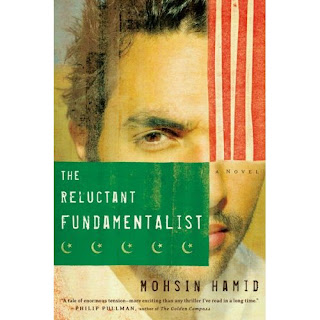 "THEY hate our freedom!", "THEY want to destroy our way of life!", "THEY love death more than they love life!", "Islamofascits this and Islamofascists that....". These and other like-minded statements permeated the airwaves and newspaper headlines during the early post 9/11 frenzy. There was talk, by otherwise reasonable people, of internment camps and mass expulsions. Paranoia and xenophobic patriotism electrified the air and made every Arab and Muslim living here retract in fear, concern and anger. We all wondered how far this will go and whether we should pack our bags and leave.
"THEY hate our freedom!", "THEY want to destroy our way of life!", "THEY love death more than they love life!", "Islamofascits this and Islamofascists that....". These and other like-minded statements permeated the airwaves and newspaper headlines during the early post 9/11 frenzy. There was talk, by otherwise reasonable people, of internment camps and mass expulsions. Paranoia and xenophobic patriotism electrified the air and made every Arab and Muslim living here retract in fear, concern and anger. We all wondered how far this will go and whether we should pack our bags and leave.Changez, a highly successful immigrant and the protagonist of Hamid's novel, chose to leave. Mohsin Hamid's intriguing novel is a monologue by Changez as he entertains an American visitor to dinner at a Lahore restaurant. Changez, a Pakistani immigrant, recounts his years in America starting as an ambitious student at Princeton, on to success in the rarefied air of a Manhattan valuation company. Then 9/11 transpires and things start to unravel. He becomes disenchanted with post-9/11 America and feels torn and guilty about being away from his family in Lahore as Pakistan and India, with American collusion, edge towards war. He thinks of returning home. His mind is made up when on an business assignment in Chile, a book editor compares Changez, a soldier in a high temple of the American capitalist empire, to an Ottoman Jannisary . Changez returns to Pakistan where he becomes a vocal critic of American foreign policy.
Early on in the novel, we learn that the American visitor is not a guest but is there in some official capacity. Tension builds as we learn that the American is uneasy and suspicious. We get a distinct feeling that something ominous is about to happen but Hamid's deft storytelling leaves us guessing to the end. In fact we are left guessing at the novel's abrupt end as to what exactly happened. Perhaps it is a statement by Hamid about the murky and yet unresolved state of affair between East-West, seven years after the start of the open-ended "war on terror".
Through the monologue Hamid answers the question that Americans keep asking: "why do they hate us?". Hamid's response is not an angry polemic but a subtle, intelligent explanation. It is the fact that the United States is, whether Americans want to admit it or not, the world's economic and military bully. American by and large see themselves as moral and decent individuals but there is a fine line between moral rectitude and condescending, self-absorbed, self-righteousness. America's asymmetric response to 9/11 is one manifestation of this syndrome.
Seven years on, the tide of mindless flag waving is slowly turning -slowly. This book was published in 2007 to uniformly good reviews. Yet I bought it from a bookstore a couple of weeks ago from a pile of deeply discounted books, an indication that it is not selling well. It is too bad, this book should be widely read by Americans. I guess it is more reassuring to read a book by pseudo-experts reassuring you of your moral superiority and confirming that the enemy is more vile than Satan, than to read a book that holds a mirror up to your face and shows you all the warts and wrinkles that you would rather forget.
No comments:
Post a Comment